Publications
Articles, publications, books, tools and multimedia features from the U.S. Institute of Peace provide the latest news, analysis, research findings, practitioner guides and reports, all related to the conflict zones and issues that are at the center of the Institute’s work to prevent and reduce violent conflict.
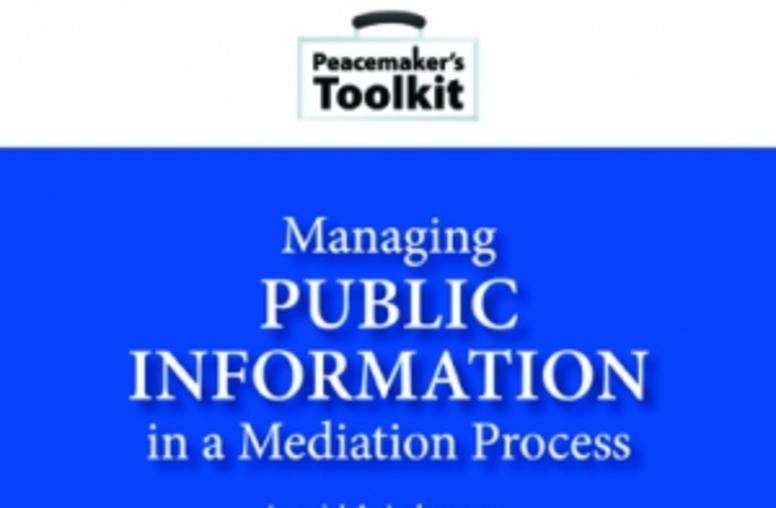
Managing Public Information in a Mediation Process
Managing Public Information in a Mediation Process, the second handbook in the Peacemaker's Toolkit series, helps mediators identify and develop the resources and strategies they need to reach these audiences. It highlights essential information tasks and functions, discusses key challenges and opportunities, and provides expert guidance on effective approaches. Examples from past mediations illustrate how various strategies have played out in practice.
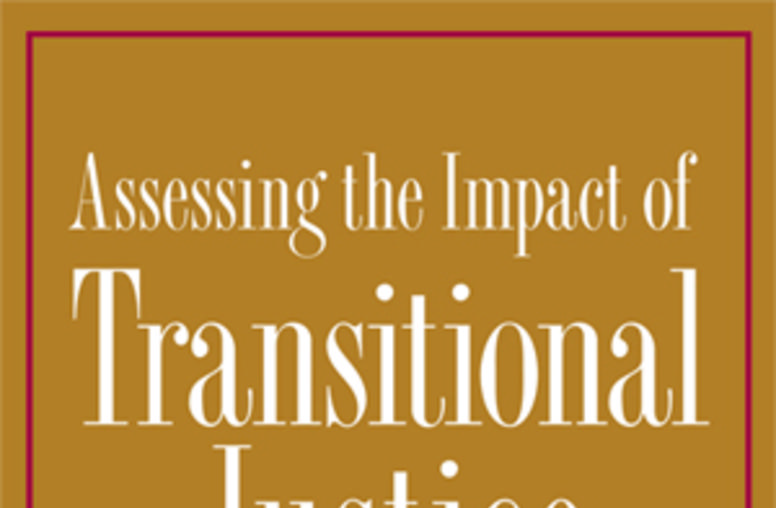
Assessing the Impact of Transitional Justice
In Assessing the Impact of Transitional Justice, fourteen leading researchers study seventy countries that have suffered from autocratic rule, genocide, and protracted internal conflict.
Oral Histories: Iraq Provincial Reconstruction Teams (2008-2009)
The Iraq PRT program has highlighted the challenges that the U.S. government faces in conducting operations in conflicted environments. The Iraq PRT Project collected insights and lessons learned from government, military, and non-governmental officials. Interviews were conducted by the Association for Diplomatic Studies and Training under a contract with the Institute of Peace.
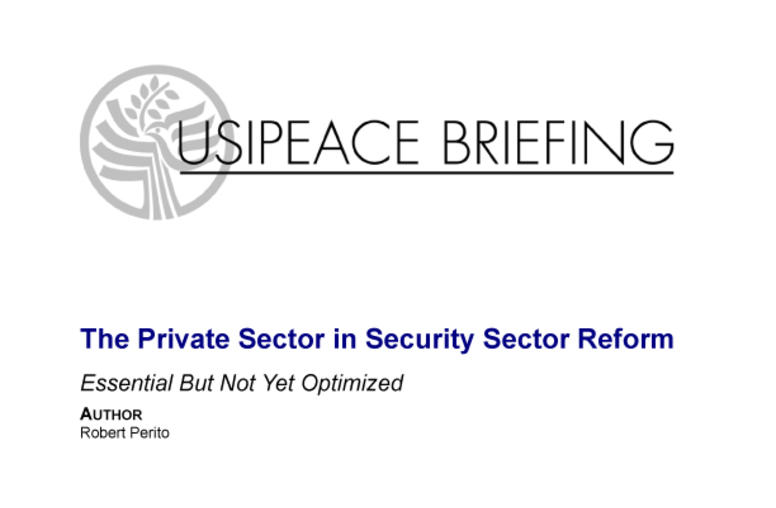
The Private Sector in Security Sector Reform: Essential But Not Yet Optimized
While the U.S. and world economies are slowing markedly, Security Sector Reform (SSR) is a growth industry for the private sector. U.S. government employees may set SSR policy and design projects, but implementation is extensively outsourced to private contractors.
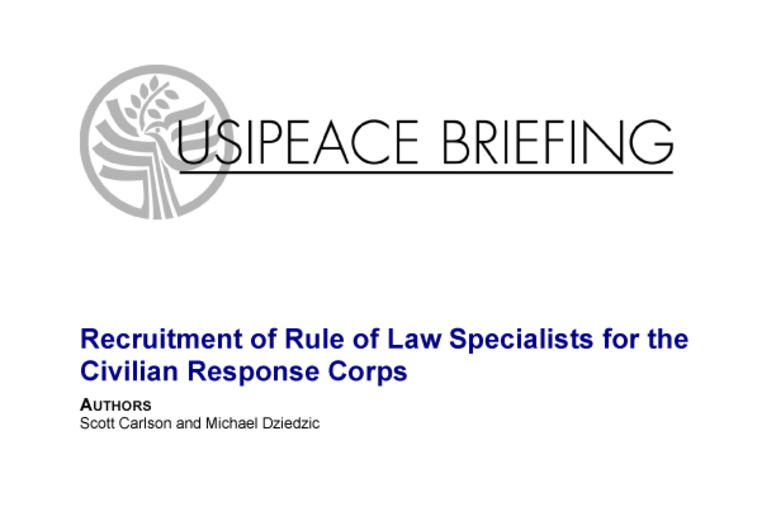
Recruitment of Rule of Law Specialists for the Civilian Response Corps
For more than a decade, experienced international practitioners and peace scholars have recognized that multilateral interventions in societies ravaged by internal conflict cannot succeed unless they come prepared to deal with the inevitable void in public security and inability of the legal system to function effectively. In 1998, two core components of any solution to this crucial deficiency were highlighted in Policing the New World Disorder.
Dr. Ali Al-Dabbagh's Iraq-based Formula for Regional Cooperation
USIP recently hosted Dr. Ali Al-Dabbagh, official spokesman for the Iraqi government, He unveiled a far-reaching regional initiative to increase economic and strategic cooperation in the Middle East. The initiative represents a new level of consciousness and independence in Iraqi foreign policy.
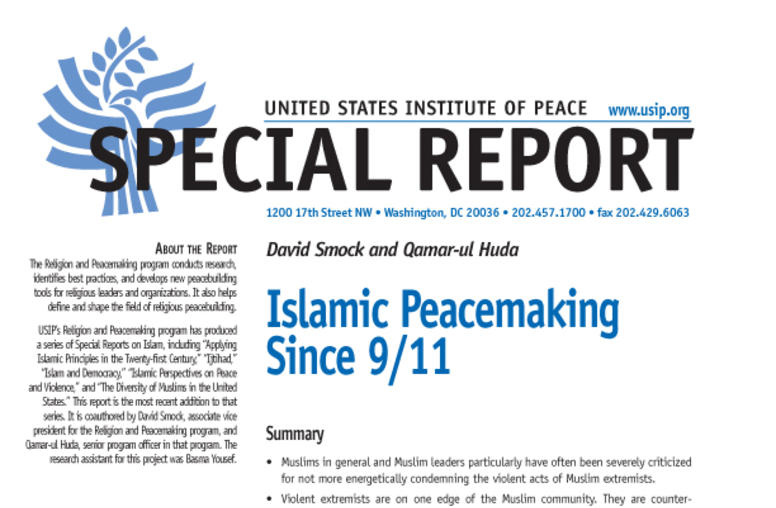
Islamic Peacemaking Since 9/11
Muslims in general and Muslim leaders particularly have often been severely criticized for not more energetically condemning the violent acts of Muslim extremists. The uninformed often assume that extremists represent Islam’s mainstream.
Preventing Genocide: A Blueprint for U.S. Policymakers
The Genocide Prevention Task Force, co-chaired by former Secretary of State Madeleine K. Albright and former Secretary of Defense William S. Cohen, was jointly convened by the United States Holocaust Memorial Museum, The American Academy of Diplomacy and the United States Institute of Peace. Its final report, Preventing Genocide: A Blueprint for U.S. Policymakers, offers practical recommendations on how to prevent genocide and mass atrocities. It was released in December 2008.
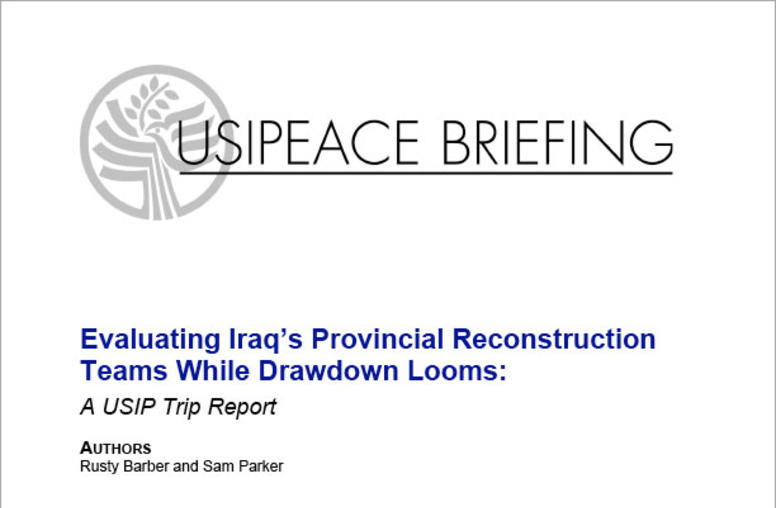
Evaluating Iraq’s Provincial Reconstruction Teams While Drawdown Looms: A USIP Trip Report
Since their 2005 inception in Iraq, PRTs have struggled to fully define their mission, overcome structural problems, learn to work alongside their military counterparts and assist Iraqis down the path to self-governance and stability so that U.S. forces can withdraw. While the concept was born in the Afghan conflict, PRTs in Iraq bear little resemblance to their Afghan cousins, which are led and largely staffed by military officers.
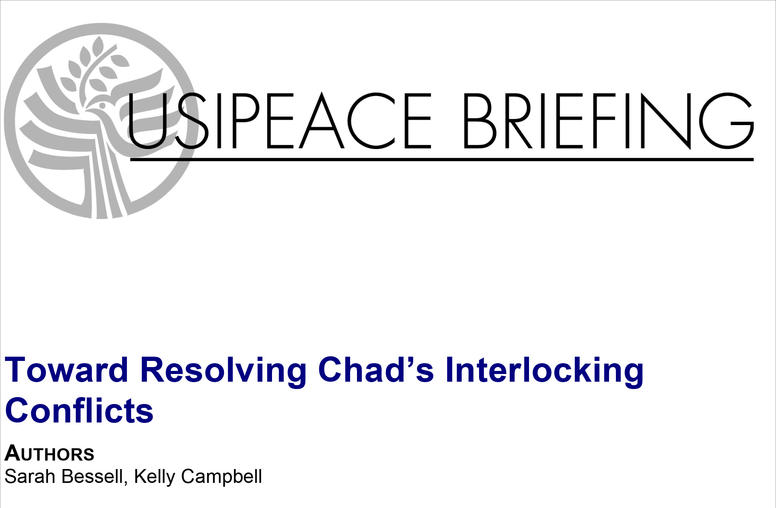
Toward Resolving Chad’s Interlocking Conflicts
The fragility of the Chadian government, as well as the fragmentation among Chadian civil society, political parties, and rebel movements, poses significant challenges that Chadian civil society, regional governments, African institutions and the international community must address with a coordinated strategy. Although the situation in the country is often examined through the lens of the Darfur crisis, several internal factors drive the instability in Chad and its regional actions.